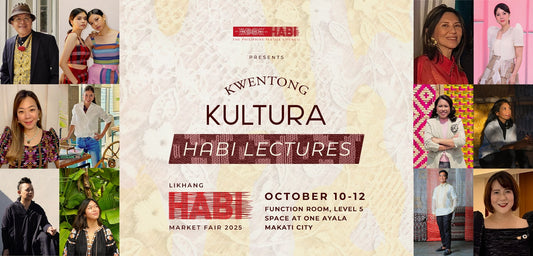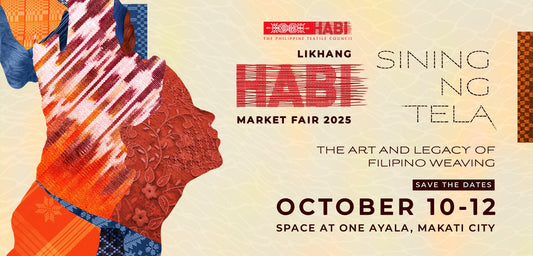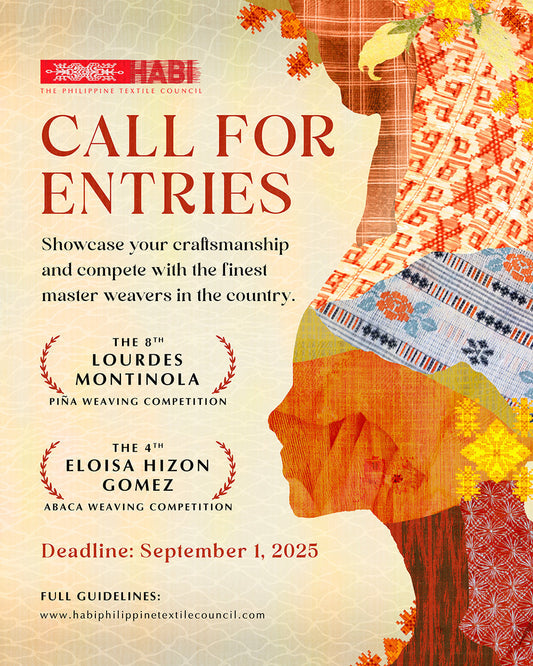HABI Council member and founder of furniture company, Dalisay Collection, Pristine Lampard shares how bringing together textile weaving and woodworking can create new opportunities for Filipino artistry on the global stage.

The Philippines has a rich, vibrant history of weaving. Until recently, this form of historic art and culture has been in danger of dying out and being replaced by machine-made textiles. Fortunately for Filipinos and design lovers, movements led by organizations, like HABI: The Philippines Textile Council, have encouraged weavers and business owners alike to preserve and innovate this cultural art form, helping to weave new stories through modern designs and keeping it at the forefront of global artistry.
About Dalisay Collection
Founded in Hong Kong, Dalisay Collection is a designer-furniture company creating distinct pieces that you can buy or try through our unique Flexible Ownership Plans. These plans allow our clients to own furniture pieces for periods of three, six, or twelve months, making designer furniture more accessible.

Our unique designs, artisan-driven approach, and commitment to locally sourced materials come together to deliver handcrafted furniture and home decor that lasts for generations. The name Dalisay is a homage to the Philippines, where the brand and I share our roots, as well as the values that guide the collaborative process that goes into each one-of-a-kind piece.
In collaboration with our award-winning designers in Hong Kong and the Philippines, we work closely with skilled, independent craftsmen in the Philippines as a testament to the global potential of Filipino craftsmanship. Together we transform the artisanal techniques and narratives of textile weaving and woodworking into functional artwork for homes and businesses in Asia.

Traditional Filipino Textiles in Modern Furniture
Fusing together art, culture, and contemporary design, designers can respectfully reimagine Filipino textiles and weaving beyond their traditional uses. When creating furniture pieces that double as statement art pieces, it’s the details that pull everything together. While Filipino textiles are often thought of mainly for clothing, these artisanal techniques and narratives can find new life through modern designs for homes, hotels, and restaurants.


When our design team at Dalisay Collection was looking for the right fabric to complement our latest collection, it was no question to use handmade fabric from local weavers in the Philippines. Every handcrafted furniture piece from our design collection is one-of-a-kind, with variations due to natural differences in wood grain, stone color, and the like. Using handwoven, small-batch fabric allows designers to continue weaving unique stories into their pieces while encouraging conscious design and celebrating local craftsmanship.
Filipino Weaving on the Global Stage
Alongside woodworking, Dalisay Collection has highlighted Filipino weaving in numerous designs. Incorporating reclaimed mahogany wood and a cushion made from Anthill Fabric’s Zero Waste Collection, our Chair-04 made its debut at Art Central in Hong Kong. The same design can now be found at Hong Kong’s harakako café in Sheung Wan, further highlighting Filipino artistry abroad.

Clothing using Filipino-made textiles can help combat fast fashion, and incorporating these same high-quality, beautiful materials into slow furniture and interior design can help encourage sustainable design and manufacturing in an era of fast furniture. As consumers, designers or business owners, we can help to preserve Filipino culture and sustain its growth for generations to come.

Learn more about Dalisay Collection’s designs and Filipino craftsmanship at dalisaycollection.com




